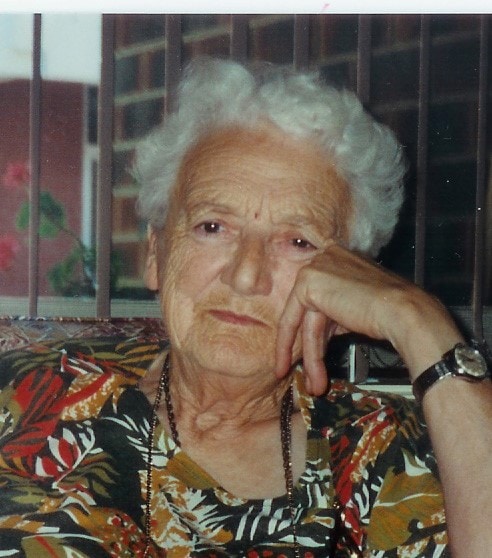
Closing Graylands Hospital is a step in the right direction
May 2, 2016
Mary Elliott
May 5, 2016Born: April 13, 1828 – Died: December 30, 1906
Josephine Butler once described as ‘the most distinguished Englishwoman of the nineteenth century’ was a Victorian era British feminist and social reformer who was especially concerned with the welfare of prostitutes.
She was not some pious do-gooder, despising the very people she set out to help – from the start she risked her reputation, her dignity, her health and her personal safety by going into the workhouse, sitting on the floor of the oakum shed with the women and girls who worked there (prisoners, or workhouse inmates) and talking to them, alone with them.
Her support for the most despised of women was at the heart of her life’s work. She ‘made no distinction between “respectable” and “fallen” women’, identifying with those whose bodies were subject to abuse by men, the men who had forced them on to the streets in the first place and/or abused them whilst they were there, and the doctors who enforced surgical treatments to control them.
Her father John Grey was a strong advocate of social reform and a campaigner against the slave trade; his cousin was Earl Grey, British Prime Minister between 1830 and 1834.
Josephine married George Butler in 1852. He was an academic with similar political views to her own. Josephine and her husband were active in social causes and opponents of slavery anywhere in the world. They were also well known sympathizers with the Union cause of the American Civil War. They had 4 children; however in 1863, their six year old daughter died. In an attempt to cope with her grief, Butler threw herself into charity work, particularly related to the rights of women.
In 1869, Butler began her campaign against the Contagious Diseases Acts. These had been introduced in the 1860s in an attempt to reduce venereal disease in the armed forces. Police were permitted to arrest women living in seaports and military towns who they believed were prostitutes and force them to be examined for venereal disease. The Contagious Diseases Act – which Josephine referred to as “surgical rape” – meant that a police officer could accuse any woman of prostitution and turn them over to a group of government backed medical workers who would perform an intrusive examination upon the woman and confine her for a period of three months to “quarantine” her. This became a way of intimidating and abusing women on the streets of London and a simple accusation by a police officer–no matter their honesty or integrity–annihilated the reputation of the woman and left her untouchable within polite British society.
Josephine fought for the repeal of these laws because of the abuse it assisted and the victimization it spread among women who were already victims. Josephine could not understand how a society could be so ostensibly Christian yet simply reject women who were in critical need of help. Josephine had learned to love these women and had become their benefactor–a voice to the voiceless. She was slandered and physically assaulted by Christians and non-Christians alike but her faith bade her remain the friend of the victim and the oppressed. She rejected any morality that appeared built upon a double standard of sexual justice.
Butler toured the country making speeches condemning the acts. Many people were shocked that a woman would speak in public about sexual matters. But in 1883 the acts were suspended and repealed three years later.
Amongst the issues on which she campaigned was child prostitution. She was part of a group which forced parliament to raise the age of consent from 13 to 16.
Butler also took a great interest in women’s education. She pressured the authorities at Cambridge University into providing further education courses for women, which eventually led to the foundation of the all-women college at Newnham. She was appointed president to the North of England Council for the Higher Education of Women in 1867.
There have been a number of books about her, and the Church of England commemorates her, appropriately enough, in prayer on a dedicated day in the church calendar. The University of Durham has named a College after her, and there’s a Josephine Butler Primary Campus also in Northumberland, her birthplace. But still, we should know more, we should celebrate this truly remarkable woman. As her most recent biographer wrote, ‘her achievements had lasting impact. Her name deserves to be remembered by all who value women’s struggles to improve their lives’. The volume both justifies that claim, and explains why she is so much less well-known than her contemporary, Florence Nightingale, for example.
Because Josephine Butler, whilst epitomising many of the virtues expected of Victorian womanhood (piety, purity, motherhood and devotion to her husband), also broke all the rules. She went into places where respectable women should never venture, precisely because that was where she found the women she spent her life defending and supporting. Not only that but she spoke in public about their plight, about the abuses of the system which forced internal examinations – ‘steel rape’ – on suspected prostitutes in order to protect their male clients from disease, and the inequalities which trapped so many women in situations where prostitution might seem their only option. A contemporary journalist described her as ‘an indecent maenad, a shrieking sister, frenzied, unsexed, and utterly without shame’.
Josephine was driven by her convictions to go on, despite the cost to her family, to her health, to her reputation, because she believed utterly in her crusade. She saw not only the immediate injustices but the underlying systemic ones that allowed these abuses to continue – the separate spheres for men and women which kept so many women ignorant and denied them a voice, the lack of educational opportunities, of voting rights, of rights for married women. Josephine was part of all of those campaigns – all of the movements which laid the foundations for the legislative and cultural changes which swept through the twentieth century.



